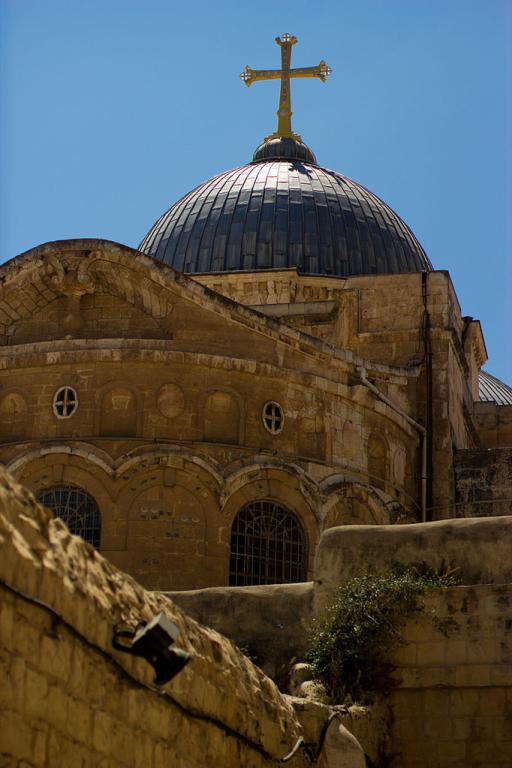
(Wikimedia Commons public domain image)
I’ve been aware of this curious situation, I think, since I first lived in Jerusalem in 1978. But people need to know about it, and I’m grateful to Jabra Ghneim for alerting me some time ago to this article, which was originally published shortly before Easter 2013:
http://www.ibtimes.com/who-guards-most-sacred-site-christendom-two-muslims-1161517
***
Here are three quotations that have been attributed for nearly a millennium and a half to the Islamic prophet Muhammad:
Whether or not they really go back to him, they are widely believed to do so and, for that reason, are widely revered and accepted.
***
I’ve seen Joseph and the Amazing Technicolor Dreamcoat more times than I can count. Thus far, I’ve seen it twice this year. Once in Herriman and once at the Utah Shakespeare Festival in Cedar City.
I enjoy it every time, but Dreamcoat is, so far as I can tell, an utterly vacuous play. If it has any kind of a real point or serious idea, I’ve never been able to discern what that point or idea might be. Still, its music is fantastic, it’s exceedingly clever, it’s very funny, and it’s wonderfully entertaining.
As it happens, I’m teaching a course on the Qur’an in English this semester and, in the relatively near future, we’ll be reading Surat Yusuf, or “the chapter of Joseph” — which parallels the account in Genesis. I will, no doubt, share some of the insights from the recent performances in my class at the appropriate point. Once a careful reader recognizes the presence of French cabaret music in the ancient story, as well as calypso and country and, well, something like Elvis, much that has been enigmatic in the tale will, I trust, become instantly clear.
***
Here’s a passage from the Qur‘an on whether a finite book can contain all of the words of God:

“Say, ‘If the sea were ink for [writing] the words of my Lord, the sea would be exhausted before the words of my Lord were exhausted — even if we brought its like to replace it.” (Qur’an 18:109)











